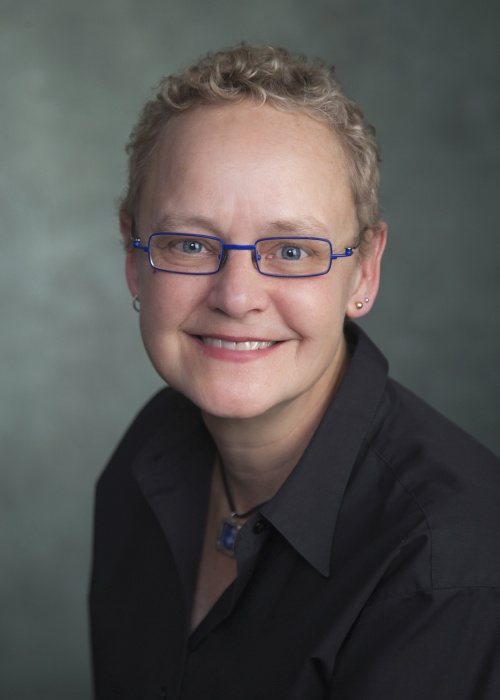Privilege. More and more often we are being asked to check it. With the concept of privilege being discussed and challenged more and more every day, it seems like a good idea to delve into Camosun’s opinion of privilege, specifically what’s often referred to as “male privilege,” and a concept that has surfaced more recently: “female privilege.”
Camosun students have vastly varying opinions when it comes to how they feel about privilege based on being female or male. While some feel that there are little to no issues to speak of, others feel that social constructs that operate within a gender binary (which doesn’t acknowledge the gender spectrum) can definitely impose structures that lead to barriers and even unsafe conditions for some students.
Female privilege not a reality
Josie West, a first-year university transfer student, feels that as a student at Camosun male privilege is an everyday reality. “I feel affected by male privilege in the postsecondary environment of Camosun in the sense of safety,” says West. “If I take night classes, I have to worry about getting to the bus stop safe.”
But it’s further reaching than safety concerns, says West. “There’s also the issue of being in an academic environment and worrying about not being taken as seriously as a male peer. There have been studies that have shown that teachers are more likely to call on male students than female students right away. But to be perfectly honest, I feel affected by male privilege as much as I do in any other environment.”

Female privilege may seem like a plausible concept to some, but West believes that it doesn’t exist. “Men will always have privilege over women,” she says, “seeing as the patriarchy puts white, cisgender males on the top pedestal and in the most positions of power.”
For female privilege to be a reality, West says that “it would require our society to try and control men’s outfits and say that they’re ‘asking for rape’ if dressed provocatively. It would require men to feel unsafe at night and, if they’re attacked, being told that it is their fault for being out at that time of the night. It would mean that whenever men go outside, they would have to worry about street/sexual harassment.”
No privilege, no problems?
Male privilege, according to some students, may not be so prevalent on campus. Andy Haswell, who has just completed his first year as an engineering student at Camosun, says that he has “never noticed any male privilege in the classroom.”
But Haswell understands that who you are can effect your perception of privilege.
“You could say that, as a guy, I wouldn’t notice it as readily as a woman would, but, honestly, I can’t say I’ve ever noticed it at school here,” he says. “I’ve been here for a year and a half, I’ve taken 17 classes, and I can’t say I’ve seen any gender-related issues at all.”
In fact, Haswell says that gender-based issues have more to do with class composition than differential treatment.
“The only gender-related issues don’t have to do with the individuals in the classes,” says Haswell, “but just the fact that less girls go into STEM [Science, Technology, Engineering, and Mathematics] subjects, and there needs to be more encouragement of women to go into STEM subjects.”
Madeline Keller-MacLeod, Canadian Federation of Students-BC women’s liaison and former Camosun student, works with students across BC and feels that male privilege definitely manifests itself in the postsecondary environment.
“Issues such as sexual- and gender-based violence, lack of representation, and the devaluing of women’s work and ideas exist within postsecondary as they do in broader society,” says Keller-MacLeod. “These issues create barriers to accessing postsecondary for women.”
According to Keller-MacLeod, there are efforts in effect to combat these barriers to women. “The No Means No campaign, which aims to end sexual violence against women on our campuses, is a result of students recognizing the need to challenge patriarchy within postsecondary.”
More to it than gender
With so many varying opinions at Camosun as to whether privilege based on gender is an issue that students have to deal with, Annalee Lepp, chair and associate professor of UVic’s Department of Women’s Studies, offers her opinion on this complex issue.
Lepp says that before the issue of gender-related privilege can even be discussed, other concepts and structures must be taken into account.
“The concept of intersectionality very much complicates this idea, as access to benefits is very much dependent on other social factors, such as racial and ethnic background, gender identity, sexuality, ability, and class,” explains Lepp, adding that “whiteness is a very significant form of privilege in Canada, for example, and works together with gender and class privilege to shape access to advantages.
“Access to benefits and privileges works very differently in men’s and women’s lives, dependent on various otherĘfactors thatĘshape their social location within relations of power,” she says.

The concept of “female privilege,” according to Lepp, is problematic because, in essence, it doesn’t take into account the diversity and intersectional reality we live in.
“One of the key problems with theĘconcept is that it assumes that women have a homogenous experience in relation to men, who are also assumed to be a homogeneous group,” she says. “Intersectionality provides us with theĘtools to think about privilege and disadvantage in more nuanced ways, taking into account other categories of social identity and how race and ethnicity,Ęgender identity, sexuality,Ęability, and class shape access or non-access to privileges, benefits, advantages, and rights.”
According to Lepp, instead of focusing on questioning privilege based solely on gender, we should be more aware that there are more dynamic factors at play.
“The question is which women are being referred to, who presumably have access to certain privileges based on sex,” she says. “White, middle-class female students who appear to be the primary referent when this concept is invoked? However, what about female students who do not fall in that category and who may experience racism, transphobia, homophobia, ableism, and classism?”
On the other hand, the concept of male privilege “generally refers to a system whereby men have access to unearned social, economic, and political advantages, benefits, or rights to which women do not have equal access,” she says.
Based on Lepp’s academic opinion, it seems that privilege has deeper, more intertwined roots than gender alone, and it’s easy to miss the bigger picture when gender is the sole focus.
Camosun: equality for some
Camosun College ombudsperson Carter MacDonald says that Camosun is miles ahead when it comes to male privilege relating to faculty. “Well, certainly there have been great strides in terms of having women be in senior positions here at the college,” MacDonald says. “For all of the years I have worked at Camosun College, we have had a female president.”
MacDonald says that progress is being made, especially with more women entering the college’s trades programs at Interurban.
“When I first came to Camosun College 19 years ago, I didn’t see women in carpentry, I didn’t see women in welding, I didn’t see women in fine furniture, and today there are a great number of them,” he says.
But it’s not all so rosy on the student side of things. MacDonald says he still gets complaints from students that are troubling. “I’ve had people report language being used that is not appropriate,” he says. “I’ve also seen men that have come to me in areas that women dominate, such as nursing, and feeling that they may not be getting as fair a shake as would be the case if they were female, and the same thing with female students in the trades.”

Although MacDonald maintains that there are very few instances in which privilege takes a turn for the extreme, he does recall a particular student who had some notable opinions. “When I was manager of college safety,” says MacDonald, “I dealt with a mature student who had written articles online that were very derogatory; in essence that women should be barefoot and pregnant. He believed in paternity. He even marched in the Victoria Day Parade all by himself with a sign that said paternity.”
Exercises in examination
Regardless of what privileges we each benefit from, the process of checking said privilege at Camosun is an exercise unto itself.
No matter who we are, we usually partake in privilege of some sort. Certain areas of study within Camosun seem to be more difficult to navigate for some.
“Certainly I have no doubt that there have been challenges for women who have trail-blazed in technology and trades,” says MacDonald, “and men who have increasingly tried to get involved in fields like nursing.”
But for some people, like West, the very concept of female privilege is out of the question.
“In order for there to be ‘female privilege,’ it would involve having a system where women systematically oppress men,” she says. “It’s simply not possible in our patriarchal society.”

The closing quote from Josie West is spot-on. In some circumstances, is it better to be a female than a male? Sure. But that’s not the point. Privilege is about the benefit of the doubt. If I get a promotion at work, people congratulate my own personal merit. If myself, as a male, fails at something, it’s because I did not merit the achievement, where if a woman fails at something, it is often seen as relative to their gender. That’s privilege.